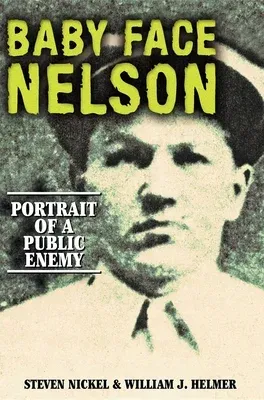Lester Joseph Gillis -- better known to the public and press of the
1930s as Baby Face Nelson -- was one of a succession of public enemies
beginning with John Dillinger and progressing to Bonnie and Clyde, Ma
Barker, Machine Gun Kelly, and Pretty Boy Floyd. For decades their
stories were largely myths, containing a combination of popular folklore
and carefuly crafted FBI fables.
In recent years historians have generated a more factual look at the
life and times of the various Depression-era desperados. Until now Baby
Face Nelson has remained as enigmatic and one-dimensional as he was
then, portrayed by J. Edgar Hoover and newsmen as a trigger-happy punk
who looked like a choirboy and killed without a conscience. Finally the
full story of his short life can be told.
Using new information that comes from the formerly classified files of
the FBI, the Nelson who emerges from the pages of Baby Face Nelson:
Portrait of a Public Enemy is a more paradoxical and interesting figure
than one might expect. Obviously addicted to crime in his youth and
evidently intoxicated with violence near the end of his life, he came
from an ordinary, honest middle-class family. In a surprising departure
from the gangster norm, Nelson and his wife remained fiercely devoted to
one another, and between holdups they often lived a quiet domestic life
with their two children and, at times, Nelson's mother.
The main focus of this biography is on Nelson's remarkable criminal
career, from sensational bank robberies and blazing gun battles up to
his death at the age of twenty-five. Many misconceptions are corrected
and some of the abuses of the FBI are exposed.

